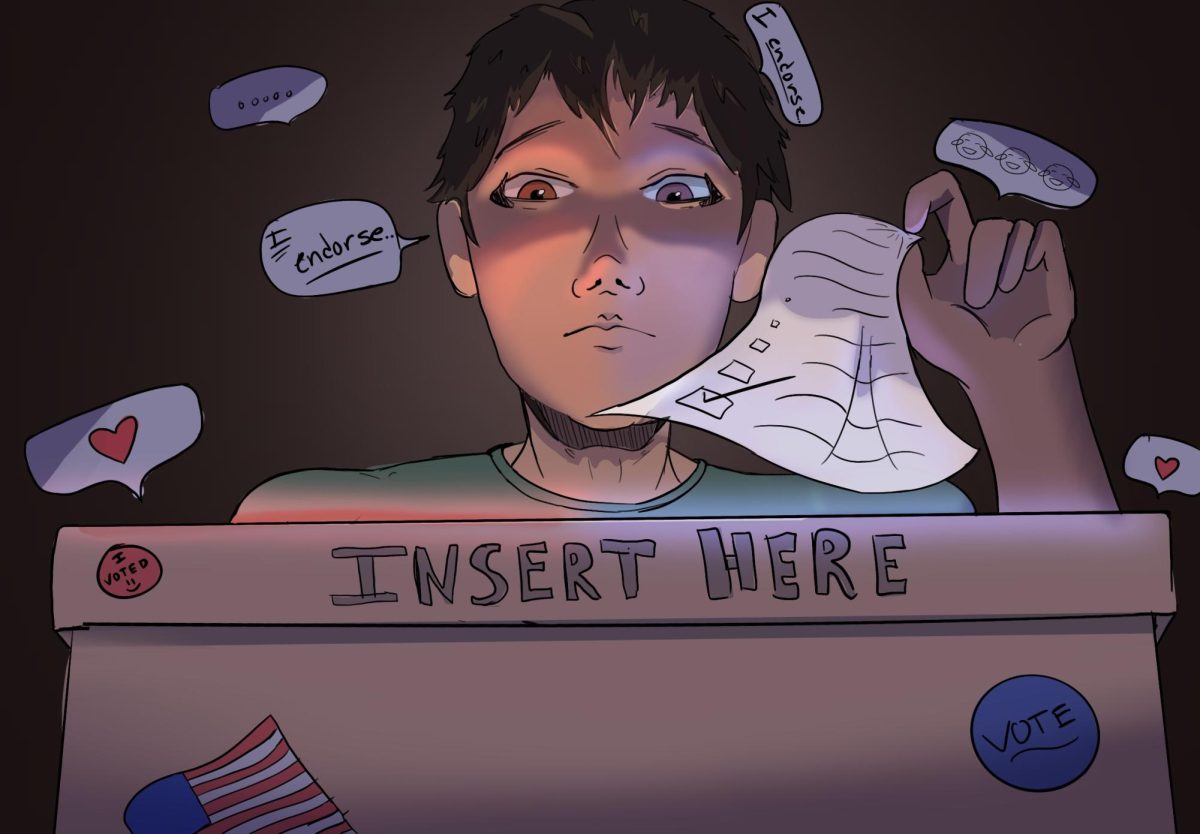On November 5, 2024, seniors will consider a variety of factors as they fill in their ballots for the 2025 presidential election. This year, one controversial element of their decision could be the influence of social media.
Social media sites use algorithms to maximize the time users spend online. During election seasons, senior Gyan Nawbatt believes that interaction-based algorithms create biased perceptions of political candidates.
“What gets the most clicks is what becomes famous. That’s why a lot of misinformation about politicians spreads, and that’s why extreme ideas spread faster,” Nawbatt said. “(Donald Trump) says stuff that is meant to rile people up, and I see a lot of that from social media.”
Similar to Nawbatt, English teacher Hannah Blue is worried about the one-sided stories social media can create. She believes that popular clip compilations like those that emerged after the Trump-Harris debate only serve to confirm the beliefs of biased viewers.
“It’s literally like the highlight reel and the lowlight reel,” Blue said. “I personally think that it’s not a good look. To me, it becomes very echo chambery.”
In addition to personalized feeds, online manipulation has taken on a new form: artificial intelligence. Social science teacher Christine Byerley believes that voters may give AI content undue credibility.
“It’s (AI) making it more difficult to identify what is reality and what is not – where truth lies and where it doesn’t,” Byerley said. “You have to be so much more cognitive in what you’re looking at and so much more critical. I’m not sure the general population has caught up.”
Despite the bias and misinformation present on social media, students like sophomore Djoni Muresan feel political content does little harm because it is primarily viewed as entertainment.
“I saw this mixtape that KamalaHQ posted. Then a bunch of people made a TikTok dance to it,” Muresan said. “I don’t seriously associate that with Kamala Harris’s campaign, but I do think it’s funny.”
Although some students believe social media content is not a serious part of campaigning, other voters maintain that media tactics like celebrity endorsements can sway major elections.
“Taylor Swift and other celebrities have an enormous amount of power and influence,” Blue said. “To someone who’s not a fan of hers – or isn’t a fan of the candidate she’s promoting – I can understand how that seems unfair.”
Even among debates about the trustworthiness of political social media campaigns, for young voters, social media can be a bridge into spheres of political knowledge and debate.
“I know a lot of people who can’t vote yet do not have any interest in watching the debates, or even a highlight on YouTube. But if they see a funny meme on TikTok or Instagram, they’re more willing to absorb that content,” Nawbatt said.
Despite questions about their political knowledge, Generation Z has shown it is paying attention to the upcoming election. Whether they prefer to get their sources from Instagram or AP News, Byerley has a suggestion for all students eligible to vote in November.
“Make the best decision you can with what you believe to be true because you don’t get to have a voice if you don’t vote,” Byerley said.


